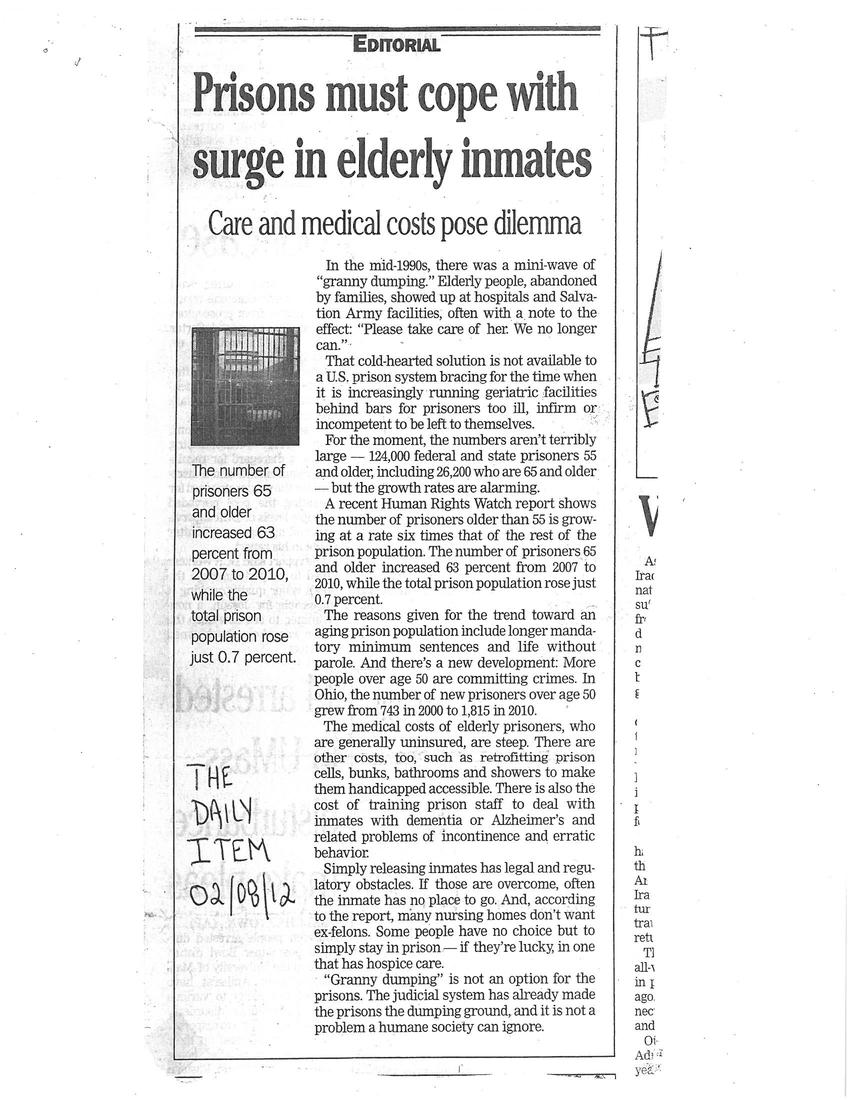
Transcription
Editorial
Prisons must cope with surge in elderly inmates
Care and medical costs pose dilemma
In the mid-1990's, there was a mini-wave of "granny dumping". elderly people, abandoned by families, showed up at hospitals and Salvation Army facilities, often with a note to the effect: "Please take care of her: We no longer can".
That cold-hearted solution is not available to a US prison system bracing for the time when it is increasingly running geriatric facilities behind bars for prisoners too ill, infirm or incompetent to be left to themselves.
For the moment, the numbers aren't terribly large - 124,000 federal and state prisoners 55 and older, including 26,200 who are 65 and older - but te growth rates are alarming.
A recent Human Rights Watch report shows the number of prisoners older than 55 is growing at a rate six times that of the rest of the prison population. The number of prisoners 65 and older increased 63 percent from 2007 to 2010, while the total prison population rose just 0.7 percent.
The reasons given for the trent toward an aging prison population include longer mandatory minimum sentences and life without parole. And there's a new development: More people over the age 50 are committing crimes. In Ohio, the number of new prisoners over the age 50 grew from 743 in 2000 to 1,815 in 2010.
The medical costs of elderly prisoners, who are generally uninsured, are steep. There are other costs, too, such as retrofitting prison cells, bunks, bathrooms and showers tomake them handicapped accessible. There is also the cost of training prison staff to deal with inmates with dementia or Alzheimer's andrelated problems of incontinence and erratic behavior.
Simply releasing inmates has legal and regulatory obstacles. If those are overcome, often the inmate has no place to go. And, according to the report, many nursing homes don't want ex-felons. Some people have no choice but to simpy stay in prison -if they're lucky, in one that has hospice care.
"Granny dumping" is not an option for the prisons. The judicial system has alrady made the prisons the dumping ground, and it is not a problem a humane society can ignore.
Other posts by this author
|
2017 jun 24

|
2017 jun 24

|
2017 jun 24

|
2017 jun 24

|
2017 jun 18

|
2017 jun 15

|
More... |


Replies (1)